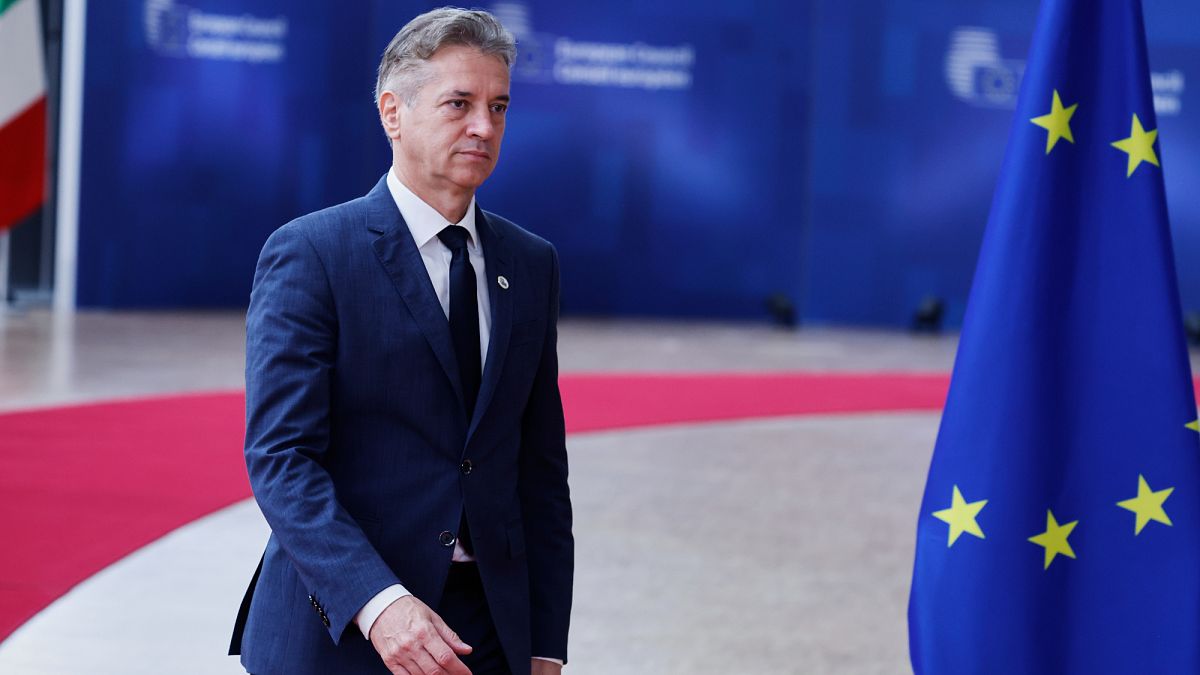

In recent days, the international stage has witnessed a series of significant developments spanning various regions and topics, from diplomatic decisions impacting the Middle East to discussions on societal roles in the UK. These events are weaving a tapestry of global interaction, reminding us of the interconnectedness of our world.
Slovenia has taken a pioneering stance within the European Union by becoming the first member state to halt weapon trade with Israel. Driven by its commitment to peace and humanitarian aid, this move follows Slovenia’s prior recognition of a Palestinian state in June last year. The country has been an advocate for increased aid to the Gaza Strip and has emphatically called for a ceasefire in the region. This decision not only positions Slovenia as a vocal advocate for Palestinian rights but also sets a precedent for other EU countries to reconsider their foreign policies regarding military commerce and humanitarian concerns.
Amid these tensions, Germany’s Foreign Minister has reiterated Berlin’s dedication to preventing Israel’s international isolation. As a traditional ally, Germany has persistently expressed its concerns regarding the situation in Gaza, advocating for increased aid deliveries. While Germany remains critical of certain Israeli actions, it calls for peace initiatives by addressing Hamas as well, aiming for a balanced approach that promotes dialogue and resolution.
Across the globe in Australia, pressure mounts on Prime Minister Anthony Albanese following the Victorian Labor conference’s vote to recognize Palestinian statehood. Reflecting the sentiments of Labour Friends of Palestine, the motion urges the federal government to extend sanctions against all members of Prime Minister Benjamin Netanyahu’s cabinet. This move aligns Australian state politics more closely with international allies like Canada, France, and the UK, emphasizing the call for a sovereign Palestinian state. The conference also touched upon reviewing the Aukus submarine deal, indicating ongoing discussions regarding strategic defense agreements.
Shifting focus to the UK’s political environment, Kemi Badenoch, a prominent Conservative leader, has revealed her evolving personal identity. Despite her Nigerian upbringing, Badenoch has distanced herself from her Nigerian heritage, stating she no longer sees herself as Nigerian and has not renewed her Nigerian passport in over two decades. Her remarks highlight the dynamics of personal identity and the diverse backgrounds contributing to political landscapes.
In another UK narrative, Labour MP Jess Phillips has shed light on the often-overlooked contributions of women in society. Speaking candidly, she argued that the UK has long benefited from the unpaid labor of women, branding this reliance as “fundamentally sexist.” Phillips’ comments underscore an ongoing dialogue about gender roles and the need for greater equality and recognition of women’s contributions to society.
Amidst these international updates, there is a shared thread of reevaluation and advocacy, pushing for systemic changes whether through trade, recognition of statehood, identity, or social equity. As these stories unfold, they serve as reminders of the intricate balance between tradition and progress, as nations and individuals alike navigate the complexities of our ever-evolving global society.
Source: {link}
